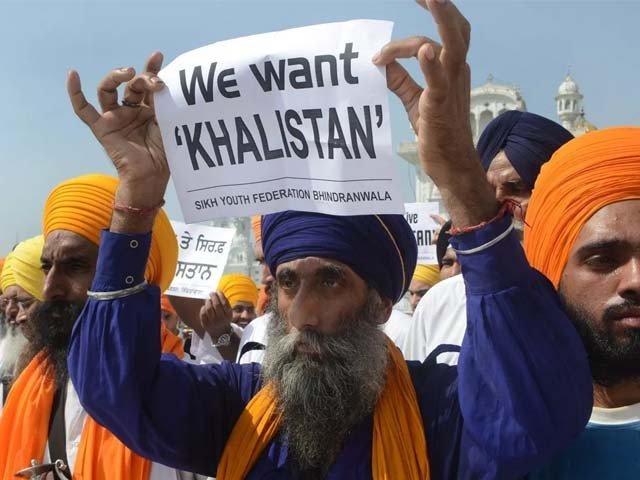
ISLAMABAD: From the Golden Temple massacre in 1984 to the present situation of minority rights, the memory of Sikhs in India is etched with a series of tragedies.
The Operation Bluestar to target Sikhs at their holiest temple in Amritsar is a gory tale written by the then India prime minister Indira Gandhi. After 37 years, the religious persecution of Sikhs still continues under the rule of premier Narendra Modi, where the community faces violation of human rights.
The Sikh voice against the Indian atrocities and discrimination is getting stronger with each passing day to save their coming generations from ethnic cleansing. Thousands of Sikhs, who gathered at London’s Queen Elizabeth Hall to vote for the Khalistan Referendum on October 31, have vowed to expand the movement for freedom.
Dupinderjit Singh, leader of the Sikhs for Justice Movement said the referendum was a strong call for freedom and marked the genocide of Sikhs under the rule of India. He mentioned that in line with the directions of the Referendum Commission, the Sikh community would continue the activity in the rest of the world.
He said during the elections in the Indian Punjab, the Commission would hold a parallel referendum and would present the demand for freedom with the United Nations and other countries. Manmeet Kaur, a Sikh journalist told that persistent acts of target-killings and desecration of holy sites in India was the main reason behind the Khalistan movement.
She said the Sikh community in Pakistan was enjoying complete religious freedom compared with their counterparts in India, where the incidents of attack on Gurdwaras (Sikh temples) was a norm. She mentioned in this regard the opening of the Kartarpur Corridor by the government of Pakistan to facilitate the Sikh pilgrims, which she said, was an act to uphold the sanctity of their holy site. The demand for a free Sikh country is being supported by different communities and the human rights watchdogs, in view of the atrocities faced under Indian rule.